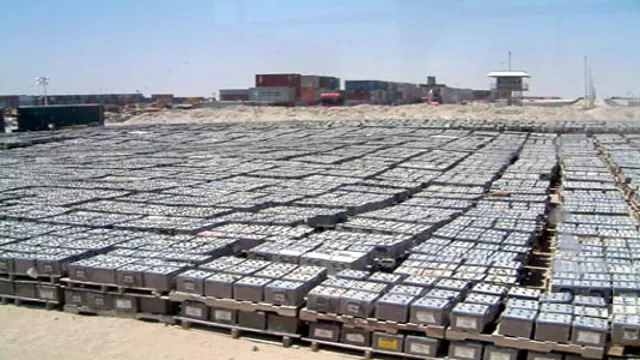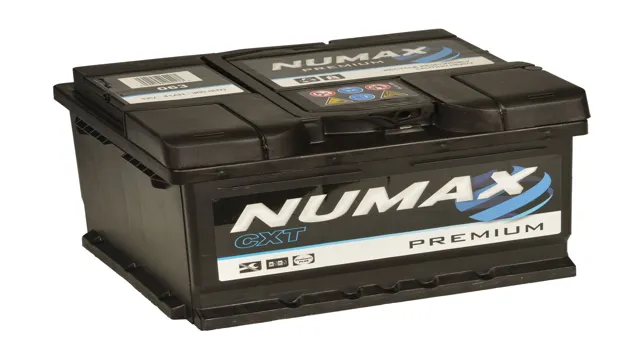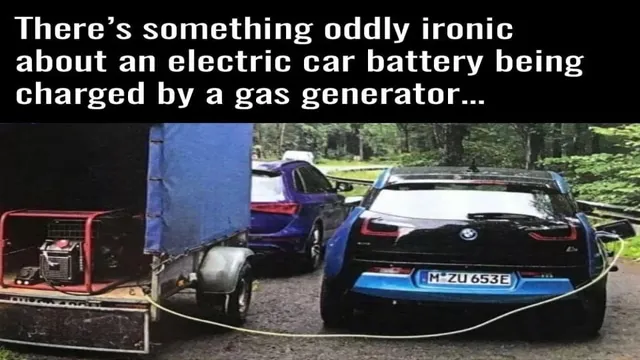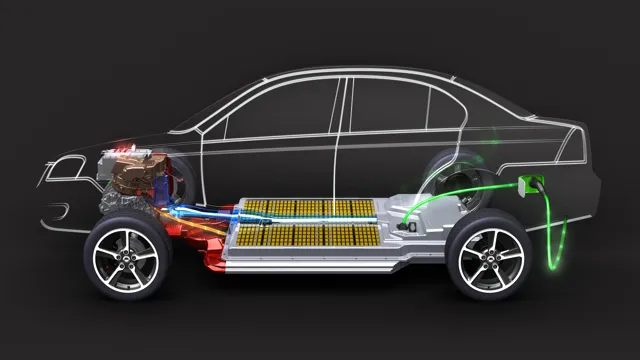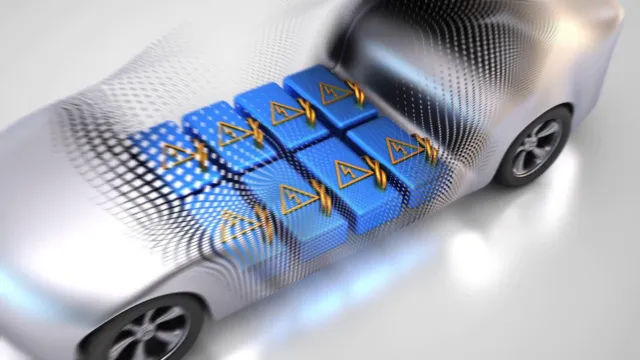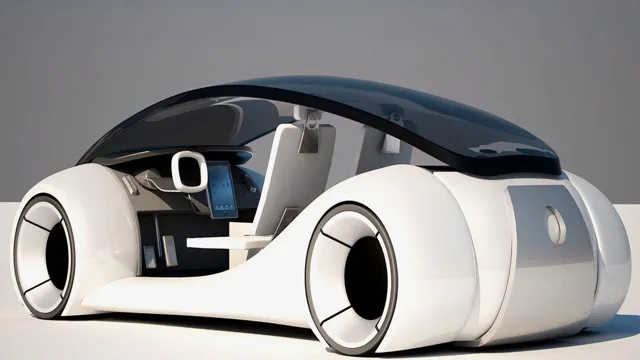Unveiling the Shocking Reality of Electric Car Battery Graveyard: Are They Really Eco-Friendly?
Take a moment to imagine an open field filled with electric car batteries, all abandoned and forgotten. It seems like a futuristic dystopia, but the reality is that this “Electric Car Battery Graveyard” actually exists. The rise of electric vehicles has brought about a new challenge: what do we do with the batteries once they have reached the end of their lifespan? While electric cars are touted as the environmentally conscious choice, the reality is that their batteries are not entirely eco-friendly.
The sheer number of used and discarded batteries is a growing concern, as they contain toxic chemicals such as lithium, cobalt, and nickel. So, what happens to these batteries when they can no longer power our cars?
What Happens to Old Electric Car Batteries?
As the popularity of electric cars grows, the question of what happens to old electric car batteries becomes increasingly relevant. While it’s true that these batteries have a lifespan of around 8-10 years, they do eventually need to be replaced. And when that happens, what becomes of them? The worst-case scenario is what many people refer to as the “electric car battery graveyard.
” But it’s not quite that simple. Old electric car batteries can be recycled and repurposed for other uses, such as in energy storage systems for homes or office buildings. There are even companies working to find ways to reuse the raw materials from these batteries to create new ones.
So while it’s important to consider the environmental impact of electric car batteries, it’s also important to remember that their end of life isn’t necessarily the end of the road.
Battery Recycling Process
As electric cars continue to become more popular, the question of what will happen to all of the old batteries inevitably arises. Fortunately, the majority of electric car batteries can be recycled. In fact, recycling companies can recover up to 95% of the materials used in electric vehicle batteries, including valuable metals like cobalt, nickel, and lithium.
The recycling process begins by taking apart the battery and separating out the metals. These metals are then processed and refined so that they can be used to make new batteries or other products. Recycling also prevents these valuable materials from being wasted in landfills, where they could potentially harm the environment.
Overall, battery recycling is a crucial part of making electric cars a truly sustainable option for the future, and it ensures that the valuable resources used in these batteries can continue to be used for years to come.
Global Battery Waste Problem
The global electric vehicle (EV) market is growing at a rapid pace, and so is the number of batteries that will eventually need to be disposed of. But have you ever wondered what happens to old electric car batteries once they reach the end of their lives? The truth is, recycling is the most common option. While it’s true that many EV batteries can still be used for other purposes, such as energy storage for homes or businesses, the reality is that many will simply break down and become waste.
That’s why it’s so important to dispose of them responsibly. Otherwise, hazardous materials like cobalt, nickel, and lithium can leach into the ground and water supply, posing serious health and environmental risks. So, the key to reducing the impact of battery waste on the environment is to make sure they are properly recycled and disposed of, rather than thrown away in landfills.
By doing so, we can help minimize the damage to our planet and ensure a safer, healthier future for generations to come.
How Are Batteries Reused or Repurposed?
When electric vehicle batteries reach the end of their useful life, they are often sent to a recycling facility to extract valuable metals like cobalt and nickel. However, there are emerging opportunities to reuse or repurpose these batteries. Electric car battery graveyards, or storage facilities where decommissioned batteries are stored until they can be recycled, are becoming a hot topic in the energy industry.
These batteries are still capable of holding a significant amount of charge, making them useful for stationary storage applications like renewable energy systems. Additionally, some companies are exploring the use of repurposed electric vehicle batteries for off-grid applications, such as lighting and small electronics. While the reuse and repurposing of electric vehicle batteries offers promising possibilities, there are still many challenges to overcome, including the limited lifespan of these batteries and potential safety concerns.
However, as technology continues to advance, the electric car battery graveyard may soon be seen not as a problem to solve, but as a valuable resource to tap into.
Energy Storage Solutions
Energy Storage Solutions As the demand for energy storage solutions increases, repurposing and reusing batteries have become more popular. While some batteries can be recycled, others can be given a second life by repurposing them into new applications. For example, electric vehicle batteries can be used to store energy in buildings or even power grids after their lifespan in cars has ended.
In addition, large batteries used in industrial applications, such as forklifts or backup power systems, can be reused as an alternative to recycling. By reusing these batteries, we can reduce waste and conserve resources while continuing to satisfy the increasing demand for energy storage. Repurposing batteries also helps to make new storage solutions more affordable and accessible, making it a win-win for both the environment and the industry.
Electric Vehicle Charging Stations
When it comes to the repurposing or recycling of electric vehicle batteries, there are several options available. One of the most popular methods involves turning them into energy storage systems for homes. These systems store energy generated by solar panels during the day, which can be used at night or during times when electricity demands are high.
Some companies are also using EV batteries to power streetlights and other small-scale devices. In addition, these batteries can be repurposed for non-polluting backup power for cellular phone towers and emergency sites. It’s important to note that repurposing EV batteries not only helps to extend their lifespan but also reduces waste and lowers the overall cost of EV ownership.
So, the next time you’re at an EV charging station, consider the many possible uses for the batteries powering your vehicle.
Battery Backup Systems
When it comes to battery backup systems, the batteries may eventually lose their ability to hold a charge efficiently and become unusable for their original purpose. However, there are ways to repurpose or reuse these batteries. One common way is to use them in off-grid or backup power systems by connecting multiple batteries together to create a larger battery bank.
These repurposed batteries can also be used to power LED lights, portable fans, and other low-power devices. Another way to reuse these batteries is to donate them to schools or organizations that teach electronics and robotics. These groups can use them in educational projects or to power microcomputers and other electronic devices.
Ultimately, repurposing or reusing batteries not only helps reduce e-waste but also provides opportunities for innovation and education.
Future of Electric Car Batteries
The future of electric car batteries is often overshadowed by concerns about the “electric car battery graveyard.” As more and more electric cars hit the roads, there’s a growing worry about what will happen to the batteries once they reach the end of their useful lives. Fortunately, battery recycling technology has come a long way in recent years.
Today, it’s possible to recycle up to 95% of the materials in a lithium-ion battery, making it much less likely that these batteries will end up in landfills. In addition, battery manufacturers are working to reduce the amount of cobalt and other rare elements in their batteries, further reducing the environmental impact of electric cars. So while the challenges of battery disposal can’t be ignored, the future of electric car batteries is looking brighter than ever.
Advancements in Battery Technology
As electric cars become increasingly popular, advancements in battery technology are constantly being made to improve performance, efficiency, and affordability. The future of electric car batteries looks extremely promising, with research and development focusing on increasing battery range, reducing charging time, and improving overall reliability. Innovations like solid-state batteries, which use a solid electrolyte instead of a liquid one, could potentially offer better performance and safety than traditional lithium-ion batteries.
Additionally, new technologies like wireless charging and bi-directional charging, which allows electric cars to not only take energy from the grid but also put it back into it, are being developed. The future of electric car batteries looks bright and could lead to a more sustainable future for transportation.
Environmental Impact of Old Batteries
The environmental impact of old batteries has been a growing concern in recent years, particularly in the automotive industry as electric cars become more common. As the demand for electric vehicles increases, so too does the need for batteries to power them. However, since batteries have a limited lifespan, it’s important to consider what will happen to old batteries when they are no longer useful.
Fortunately, advancements in battery technology are paving the way for a more sustainable future. The development of newer, more efficient batteries that can be recycled or repurposed has become a top priority for many automakers. For example, Tesla’s new “million-mile” battery promises to last much longer than traditional batteries, reducing the number of batteries that need to be disposed of.
Additionally, companies like Redwood Materials are working on developing new processes to recycle batteries efficiently and safely. By focusing on the future of electric car batteries, we can mitigate the environmental impact of old ones and pave the way for a greener future.
Conclusion
As we gaze upon the vast expanse of the electric car battery graveyard, we can’t help but feel a tinge of sorrow for these discarded powerhouses of the road. However, let us not forget the incredible feats of engineering and innovation that brought these batteries to life in the first place. Though their lives may have been short-lived, the legacy of their impact on the automotive industry and the environment will be felt for generations to come.
So, let us all raise a toast to the electric car battery: gone but never forgotten.”
FAQs
What is an electric car battery graveyard?
An electric car battery graveyard is a location where old and used electric car batteries are disposed of.
What happens to electric car batteries at the end of their life?
At the end of their life, electric car batteries are sent to recycling plants or disposal sites such as electric car battery graveyards.
Are electric car batteries harmful to the environment?
Yes, electric car batteries can be harmful to the environment if they are not recycled or disposed of properly. They contain toxic chemicals that can leak out and pollute soil and water.
Can electric car batteries be recycled?
Yes, electric car batteries can be recycled. Most of the materials used in an electric car battery, such as lithium, cobalt, and nickel, can be recovered and reused in new batteries or other products.
